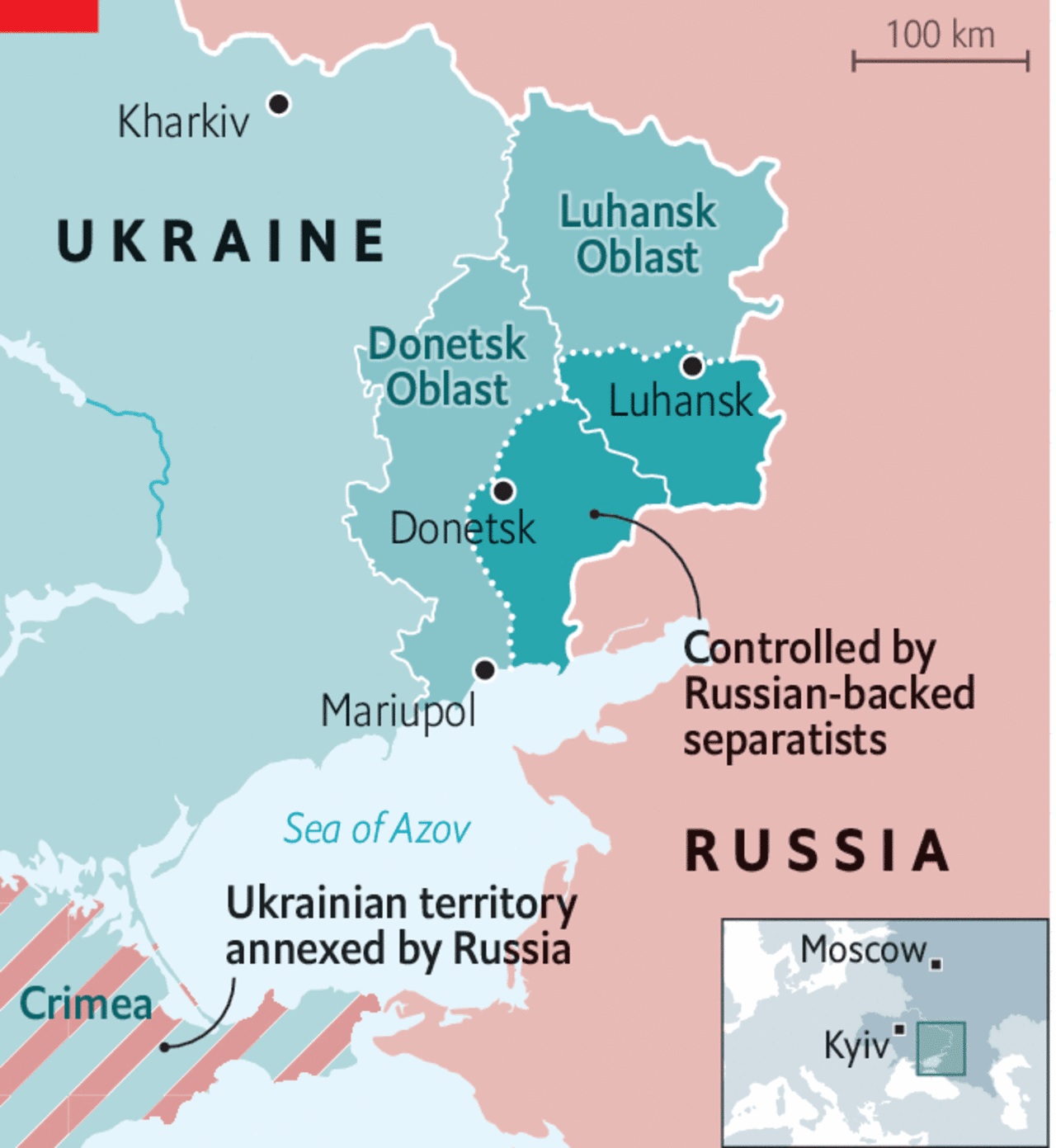7667766266
enquiry@shankarias.in
Russian President Vladimir Putin’s decision to recognise the self-declared Donetsk and Luhansk republics practically brought the Minsk peace process to an end.

The Minsk Protocol (Minsk-1) with the Minsk Memorandum was signed in 2014 to prevent war in the eastern Ukrainian region of Donbas.
The Minsk-2 (Package of measures for the Implementation of the Minsk agreements) was signed in 2015 to end the fighting in the rebel regions and hand over the border to Ukraine’s national troops.
References